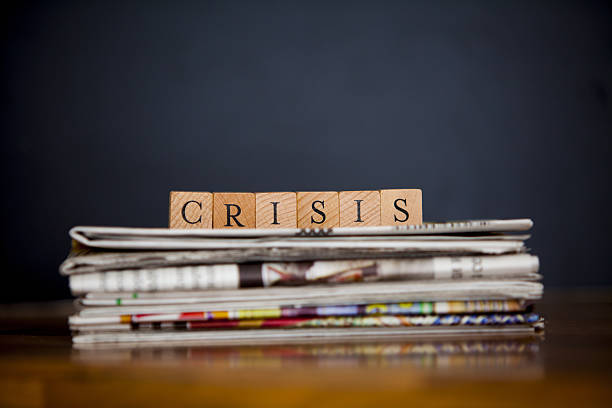Are You Prepared for the Unexpected? What would you do if your agency faced a sudden crisis communication? How would you respond to protect your reputation and keep your clients’ trust intact? In today’s fast-paced digital landscape, where news spreads in seconds, agencies must be prepared to handle crises effectively. Whether it’s a PR mishap, a client’s public backlash, or internal challenges, your ability to communicate during a crisis can make or break your agency’s credibility.
In this post, we’ll dive into essential tips for mastering crisis communication. From creating a solid plan to maintaining transparency, you’ll learn actionable strategies to navigate even the toughest situations. Ready to safeguard your agency’s reputation? Let’s get started!
1. Understand the Nature of a Crisis
Not all crises are the same, and understanding the type you’re dealing with is the first step. Is it a reputational issue, a financial setback, or a client-related incident? Categorizing the problem allows you to approach it with the right resources and strategies.
Key Points to Consider:
- Internal vs. External Crises: Internal issues, like employee misconduct, may require different communication tactics than external issues, such as a client scandal.
- Urgency and Scale: Assess the urgency and scale of the problem. Is it a minor hiccup or a full-blown crisis that requires immediate action?
By identifying the type of crisis, you can tailor your response effectively.
2. Develop a Crisis Communication Plan in Advance
“Failing to plan is planning to fail.” This saying couldn’t be more true for crisis management. Having a crisis communication plan in place ensures your team knows exactly what to do when the unexpected occurs.
What Should Your Plan Include?
- Clear Roles and Responsibilities: Assign a crisis team and designate a spokesperson to ensure consistent messaging.
- Communication Channels: Decide how you’ll communicate with stakeholders, including clients, employees, and the media.
- Templates and Protocols: Prepare crisis response templates to save time and maintain professionalism during high-pressure situations.
3. Act Quickly but Thoughtfully
In a crisis, time is of the essence. However, hasty decisions can lead to miscommunication or worsen the situation. Strive for a balance between speed and accuracy.
Quick Tips for Timely Action:
- Acknowledge the Issue: Delays in acknowledging a problem can erode trust. Even a simple, “We are aware of the situation and are working on it,” can reassure stakeholders.
- Gather Facts: Avoid speculation by collecting all relevant details before making public statements.
- Respond Proactively: Address concerns head-on rather than waiting for others to shape the narrative.
4. Be Transparent and Authentic
Transparency is a cornerstone of effective crisis communication. Stakeholders value honesty, even in difficult times. Trying to cover up mistakes can lead to greater fallout.
How to Build Trust Through Transparency:
- Admit Mistakes: Own up to errors and outline the steps you’re taking to rectify them.
- Provide Regular Updates: Keep stakeholders informed with timely updates to show progress and accountability.
- Stay Genuine: Avoid corporate jargon; speak in a tone that resonates with your audience.

5. Monitor the Conversation
The digital world amplifies crises. Social media, news outlets, and forums can quickly spread information—accurate or not. Monitoring these platforms is critical to staying ahead of the narrative.
Tools to Consider:
- Social Media Monitoring Software: Tools like Hootsuite or Brandwatch help track mentions of your agency or clients in real-time.
- Media Alerts: Set up Google Alerts to stay informed about news articles or blog posts related to the crisis.
- Sentiment Analysis: Gauge public opinion to adjust your communication strategy accordingly.
6. Communicate with Empathy
In times of crisis, people need reassurance and understanding. Empathy should be at the core of your communication strategy.
Empathetic Communication in Action:
- Acknowledge Feelings: Show that you understand the impact of the situation on stakeholders.
- Use Inclusive Language: Avoid language that blames or isolates; instead, focus on solutions.
- Stay Calm and Professional: Even if emotions run high, maintain a composed demeanor.
7. Learn from Every Crisis
Every crisis is an opportunity to improve. Once the dust settles, take time to analyze what worked, what didn’t, and how your agency can do better next time.
Post-Crisis Review Checklist:
- Evaluate Your Response: Was the crisis plan effective? Did the team execute it well?
- Gather Feedback: Collect input from employees, clients, and stakeholders about your communication efforts.
- Update Your Plan: Incorporate lessons learned to refine your crisis communication strategy.
8. Invest in Media Training
Your spokesperson’s ability to handle media inquiries can significantly impact public perception. Media training ensures they deliver messages clearly and confidently.
Media Training Essentials:
- Crafting Key Messages: Train your spokesperson to stay on message, even under pressure.
- Handling Tough Questions: Equip them with strategies to navigate challenging or confrontational inquiries.
- Practicing Delivery: Regular practice helps refine tone, body language, and clarity.
9. Maintain Strong Relationships with Stakeholders
Building trust with clients, employees, and partners before a crisis ensures they’ll be more understanding during tough times. Strong relationships are your safety net.
Proactive Relationship-Building Tips:
- Regular Communication: Keep stakeholders informed about your agency’s activities and values.
- Show Appreciation: Recognize contributions and loyalty through thank-you notes or public acknowledgments.
- Be Accessible: Make it easy for stakeholders to reach you when they have concerns.
10. Leverage Professional Support
Sometimes, handling a crisis requires expertise beyond your internal resources. Don’t hesitate to consult crisis communication professionals or PR agencies when necessary.
When to Seek Help:
- High-Profile Situations: If your agency or client is in the media spotlight, expert guidance can prevent missteps.
- Complex Crises: For multifaceted issues, external support can provide fresh perspectives and solutions.

Final Thoughts: Stay Prepared, Stay Resilient
Crisis communication isn’t just about damage control—it’s about preserving trust, demonstrating accountability, and emerging stronger. By understanding the nature of crises, planning ahead, and communicating with empathy and transparency, your agency can navigate challenges effectively.
Remember, every crisis is a learning opportunity. With the right strategies in place, you can turn potential setbacks into moments that showcase your agency’s professionalism and resilience.
How will you implement these tips in your agency’s crisis plan? Share your thoughts or questions below—we’re here to help!








